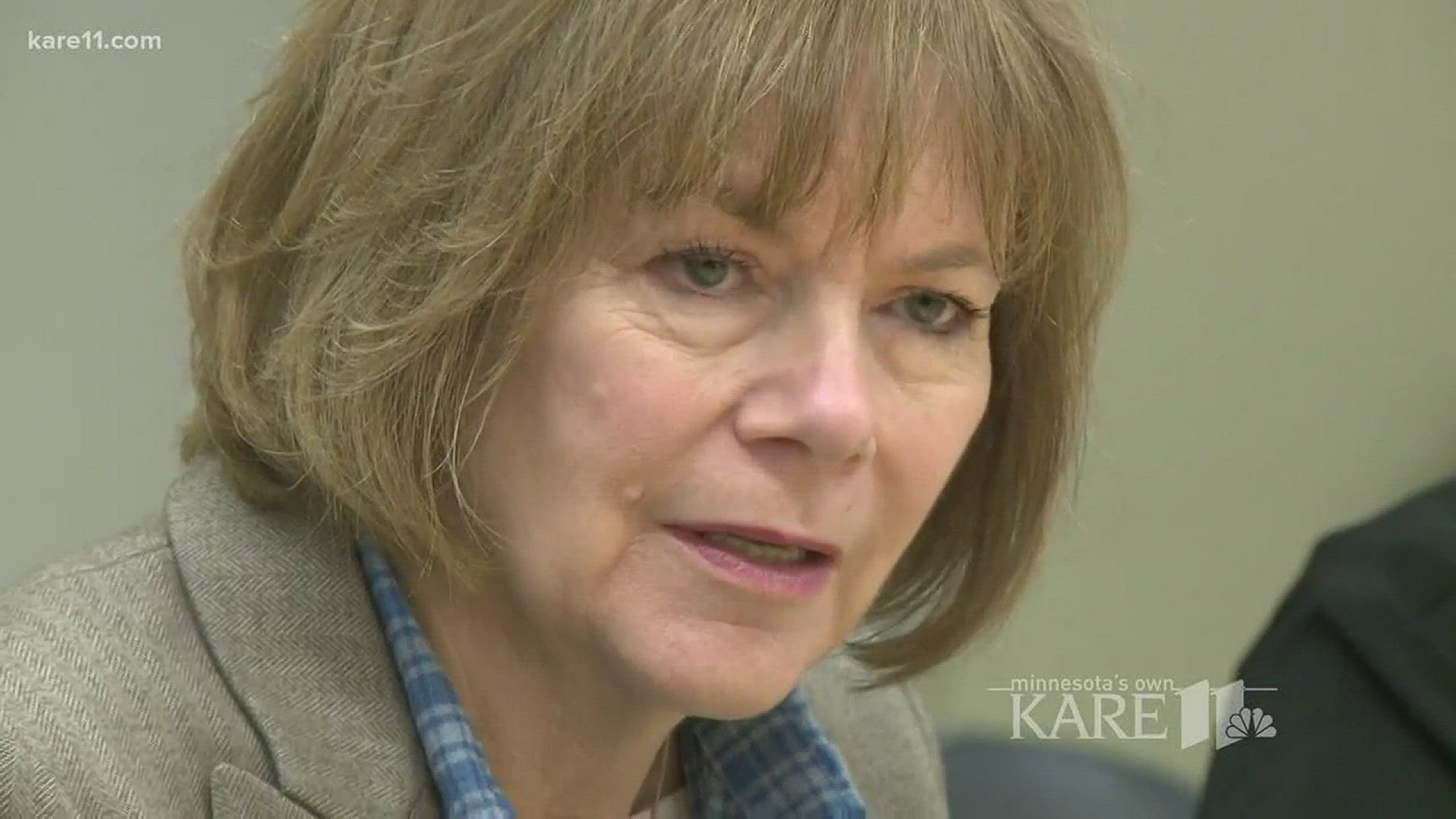MINNEAPOLIS - March is Multiple Sclerosis Awareness Month, but a local woman woman with the disease isn't just looking to make more people aware of the disease itself, but the rising costs of treatment.
Nikki Foster was just one of several people who shared their stories with Senator Tina Smith Sunday afternoon during a roundtable discussion at the University of Minnesota-Twin Cities.
The discussion featured patients with a wide variety of conditions, from cancer to HIV.
"It's great to hear their perspective on this issue of the rising cost of medication," Smith says.
Foster was diagnosed with MS in December of 2014.
"I was walking into work one day and my right leg just completely gave out from under me," Foster explains.
The diagnosis came only three months after Foster ran her first-ever half marathon.
She wondered if she'd ever be able to run again.
"Things just went from bad to worse. I couldn't feel my right leg."
Three years later Foster is walking just fine, minus the pain and numbness she feels from time to time.
She even ran a 5K last year, but says her body is nowhere near where it was before her diagnosis.
"I mostly walked that race," Foster explains.
Her progress is largely due to the treatment regimen her doctors have prescribed. However, with the rising cost of her primary medication, she wonders how long she'll be able to afford it.
"For me it's about $400 a month for prescription drugs," Foster says. "I've met my $3,000 deductible every year."
That $400 a month expense is after insurance.
The National MS Society says the average medication costs about $80,000 a year.
That's nearly $20,000 a year more than it was five years ago.
"Medicines might go from a couple hundred dollars a month, to thousands of dollars a month, and nobody knows why," Smith explains.
In February, Smith authored a bill that aims to lower medication costs by creating what she calls a "level playing field."
"I have a bill that would stop these big brand name drug companies from paying generic drug companies to keep their products off the market," Smith explains.
Currently, whenever a company comes out with a new generic drug, the federal government will grant them a 180-day exclusivity period that prevents others from joining the marketplace.
Smith says this policy gives generic drug manufacturers more incentive to create cheaper generic drugs.
However, she says often times larger companies will pay big money to prevent these generic drugs from entering the marketplace.
Smith says her bill will penalize companies that do this, which should remove this major roadblock for generic drugs.
"Right now they are making a lot of money off the system the way it is," Smith explains.
Foster was happy to hear about this new piece of legislation, but she and others in the group Sunday afternoon feel more is needed to keep drug prices from rising even further.
"My medication, when it was first introduced to the market in 2004, the price was around $16,000. Today it's more than $80,000 and it will just grow higher in the future," Foster says.

